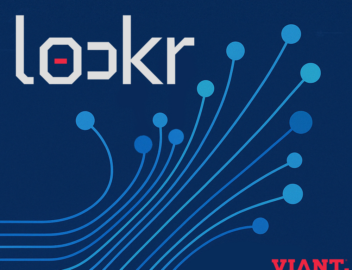

Thank you!
Just one more thing before you go...

“Identity agnostic” is a euphemism for inaction
Ryan Boh, Head of Identity at lockr, explains why being Alt ID agnostic is helping no one and why publishers should drive the adoption of alternative IDs in the wake of cookie deprecation on SmartBrief.
View the original article in SmartBrief.
As we get closer to the ultimate demise of cookies, there have been more than a hundred alternative IDs that have been proposed as a new replacement. Despite all of these IDs, like anything else new, there has been tremendous opposition, skepticism and concern for what to use when cookies go away.
In the adtech world, this is exacerbated by the many disparate players across the buy and sell sides. For whichever alternative identity (Alt ID) prevails (think UID2, ATS, ID5, Panorama ID, etc.), it must be adopted by both. With the sheer volume of Alt IDs there will continue to be fragmentation, and with no clear winner, this is somewhat counterproductive because cookies will soon be gone.
Over the years, one of the ways to dodge the question, “What are we going to do when cookies go away?” is to dance around this idea of being Alt ID agnostic. Over the same few years, there has been a proliferation of Alt IDs and a poorly defined version of what success looks like. In other words, it is easier said than done. To be clear, I’m not casting stones here, I was openly and publicly sharing this narrative, but now we must be accountable for what it means to be Alt ID agnostic.
Here is where it’s important to give credit to the major industry players who took a firm stance, and brought to market their own ID. This is industry tech leadership on full display, but it has created fragmentation on the demand side.
The evolution of the Alt ID agnostic term comes from advertiser budgets being distributed across multiple IDs instead of centralized solely on IDx. For example, if a majority of budgets fell behind IDx, then the supply side would adopt IDx in a heartbeat. Instead, publishers are non-committal and so-called-agnostic because they are forced to be multilingual. It is the publisher’s prerogative to speak the same language as the marketers looking to buy their inventory. The by-product of marketers all speaking different languages – aka relying on different Alt IDs — is that the publisher must meet their buyer wherever they are comfortable: whether that is through UID2 on the open market, a direct campaign facilitated through any number of data clean rooms or any other means of matching a desired audience with an available audience.
Furthermore, the adoption of these solutions is faced with limited time to evaluate, prioritize and build scalable integrations from a publisher to the partner.
Now multiply those same aforementioned challenges across multiple Alt IDs. With other priorities cluttering road maps and Google’s third-party cookie deprecation delays, so too have many players prolonged action until the 11th hour.
This is why I stand on the soap box claiming, “Identity agnostic is a euphemism for inaction.”
Publishers should drive Alt ID adoption
The debate over which Alt ID to adopt is contentious and may vary regionally because Alt IDs lack a global footprint. At this point, the commitment to adopt more than one Alt ID is a signal to the market that the other IDs are bad or do not work. At this stage, it is hard to determine a single winner. Case studies across the board gloat more than 200% CPM growth post-adoption and that is true for more than one Alt ID.
Solving this hurdle with an easy-to-implement framework will put the talk of this euphemism for publishers to pasture by enabling the sell-side to nimbly adopt multiple Alt IDs simultaneously. Close your eyes and envision a world where publishers do not have to carry both the burden of prioritizing and adopting individual IDs to keep up with all of the noise in the space.
Calling for an independent industry player to manage a single Alt ID is a tall order, let alone multiple Alt IDs. What does an independently managed organization gain by carrying the burden of Alt ID management, the compliance associated therein, engineering management, maintenance and more?
It is hard to decide which Alt ID to adopt, but if publishers adopt a suite of IDs simultaneously then they collectively assert more influence and seamlessly communicate with demand players. This gives the buy-side reprieve from also having to agree and adopt a centralized Alt ID and to focus on other major priorities on their roadmap. Essentially everyone wins.

Machine-Generated Email Cost Calculator
Unlock additional revenue by integrating with Identity lockr.
Select your industry vertical.
How many registered users or newsletter subscribers do you have?
Average monthly emails sent to each subscriber per month?
What is your average email open rate?Optional
What is your average email click rate?Optional
Has lockr previously analyzed the machine-generated emails in your first-party data?
What was the percentage?
Enter your RPM (page revenue per 1,000 sessions).
What is your average monthly subscriber growth rate?
What is your anonymous web visitors monthly pageview traffic?
What is your authenticated monthly pageview traffic?
Projected Incremental Revenue
Projected Annual MGE Overhead
| MGE Fees | $0 |
| MGE Lost Email Revenue | $0 |
| MGE Advertising Leakage | $0 |
| One month of Email Jail | $0 |
| Incremental Revenue | $0.0M |
Enter your email to receive the full report.
Are you sure you want to leave?
Changes you made will not be saved.







